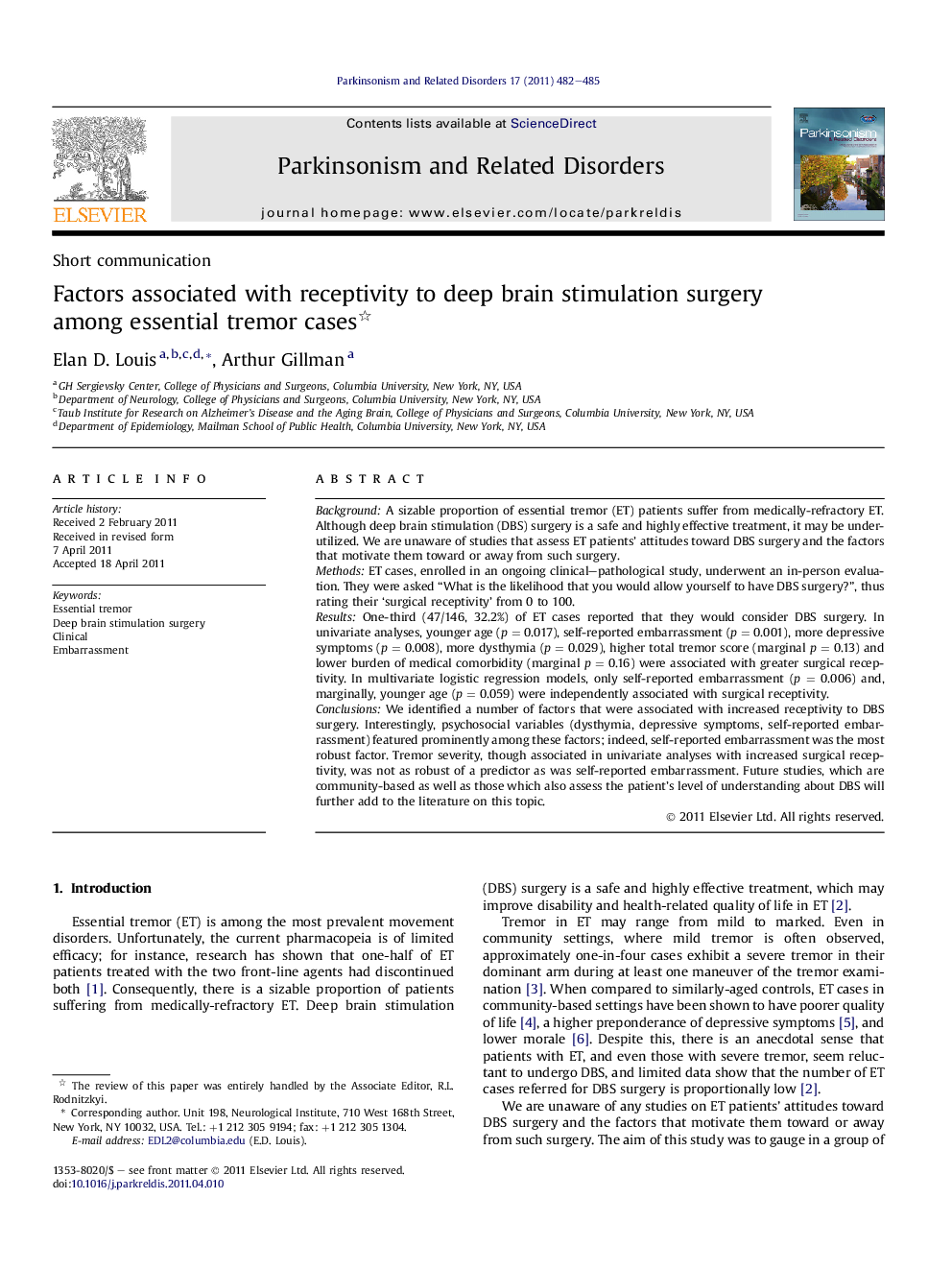| کد مقاله | کد نشریه | سال انتشار | مقاله انگلیسی | نسخه تمام متن |
|---|---|---|---|---|
| 1920974 | 1048751 | 2011 | 4 صفحه PDF | دانلود رایگان |

BackgroundA sizable proportion of essential tremor (ET) patients suffer from medically-refractory ET. Although deep brain stimulation (DBS) surgery is a safe and highly effective treatment, it may be under-utilized. We are unaware of studies that assess ET patients’ attitudes toward DBS surgery and the factors that motivate them toward or away from such surgery.MethodsET cases, enrolled in an ongoing clinical–pathological study, underwent an in-person evaluation. They were asked “What is the likelihood that you would allow yourself to have DBS surgery?”, thus rating their ‘surgical receptivity’ from 0 to 100.ResultsOne-third (47/146, 32.2%) of ET cases reported that they would consider DBS surgery. In univariate analyses, younger age (p = 0.017), self-reported embarrassment (p = 0.001), more depressive symptoms (p = 0.008), more dysthymia (p = 0.029), higher total tremor score (marginal p = 0.13) and lower burden of medical comorbidity (marginal p = 0.16) were associated with greater surgical receptivity. In multivariate logistic regression models, only self-reported embarrassment (p = 0.006) and, marginally, younger age (p = 0.059) were independently associated with surgical receptivity.ConclusionsWe identified a number of factors that were associated with increased receptivity to DBS surgery. Interestingly, psychosocial variables (dysthymia, depressive symptoms, self-reported embarrassment) featured prominently among these factors; indeed, self-reported embarrassment was the most robust factor. Tremor severity, though associated in univariate analyses with increased surgical receptivity, was not as robust of a predictor as was self-reported embarrassment. Future studies, which are community-based as well as those which also assess the patient’s level of understanding about DBS will further add to the literature on this topic.
Journal: Parkinsonism & Related Disorders - Volume 17, Issue 6, July 2011, Pages 482–485